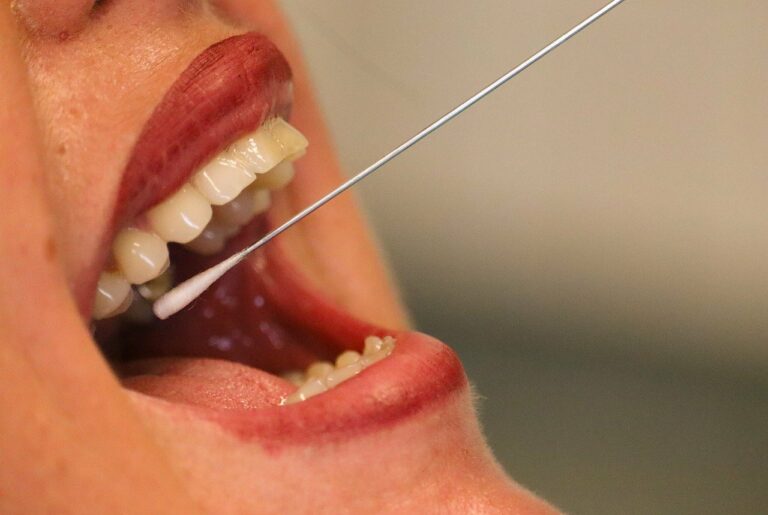Sleep is important to our bodies as it calms the nerves and relaxes the muscles, providing the tired body with much-needed relief. You’ll be more productive, have more energy, and be in better physical and emotional shape if you sleep well. Your body secretes growth hormones while you sleep, which are in charge of the body’s overall growth.
The body becomes more physically fit as a result of sleep’s role in muscle repair, growth, and recovery. When people, especially adults, don’t get enough sleep, their body muscles don’t recover. This leads to fatigue, and in extreme cases, weakens your body muscles, which causes you to lose your physical strength. Everybody occasionally has a bad night’s sleep or is sleepy during the day.
However, it might be time to look into a medical issue like thyroid disease if sleep disturbances start to become more common. Your body’s metabolism is thrown off when your thyroid produces too little or too much thyroid hormone, which can have an impact on how well you sleep.
Thyroid Management
Thyroid is a serious disorder and can even be fatal if left untreated. It is difficult to manage thyroid hormonal imbalance on your own and you need help from professional endocrinologists. A thyroid management programme helps in managing thyroid disease with the best treatment options. In accordance with your eating habits, medical conditions, and preferences, the team will assist you in planning your diet and exercise regimen. In addition to this, they also offer the necessary follow-ups to help you achieve your objectives.
Top 3 Doctors for Thyroid Treatment
Dr. Anil Bhansali
Dr. Anil Bhasali is one of the top doctors you can consult for treatment of Thyroid disorders. He is a renowned endocrinologist with extensive knowledge and experience in managing complex endocrine disorders like hypothyroidism and hyperthyroidism. Currently he is serving at Ginihealth, Mohali and this renowned wellness clinic is providing personalised healthcare to patients with customised and specialised thyroid management programs.
Dr. Ambrish Mithal
Another specialist that you can consult for your thyroid disorder is Dr. Ambrish Mithal, who is a well-known endocrinologist. He specialises in the treatment of various chronic disorders related to the endocrine system. Currently he is serving at Max healthcare, Gurgaon which is another top hospital providing treatment programs for thyroid patients.
Dr. Ajay Aggarwal
Dr. Ajay Aggarwal is another well-known endocrinologist in Delhi, whom you can consult for the treatment of complex endocrine disorders like Thyroid dysfunction. He is a specialist practising at Fortis healthcare in Delhi NCR. This healthcare provider also provides various treatment programs for thyroid patients.
The Effects of Thyroid on Your Sleep
Thyroid disorders are basically of two types– Hyperthyroidism and Hypothyroidism. Both have their own significant effects on your sleep.
Hyperthyroidism – Also known as overactive thyroid, this condition happens when the thyroid gland produces more thyroid hormones than the normal value. This disorder over-stimulates the nervous system, which can cause anxiety, a rapid heartbeat, and night sweats, all of which can make it difficult for you to sleep properly.
Hypothyroidism – Also known as underactive thyroid, it happens when the thyroid gland produces less thyroid hormones than the required value. When levels are low, you may experience both daytime and night time symptoms, such as fatigue during the day and poor sleep at night. Your sleep gets shorter and troubled when you develop this condition. Also, you might become worn out, lack energy, gain weight, become forgetful, or even become depressed as a result of hypothyroidism.
One of the crucial reasons hypothyroidism causes difficulties in sleep is abuse of medications like thyroxine. The right dose won’t be doing any harm but when you take more than required then you develop anxiety, shakiness, increased appetite, and inability to sleep. Hypothyroidism is also related with other health conditions such as Obstructive Sleep Apnea, which is responsible for disrupting sleep by causing difficulties in breathing.
Steps for Healthy Sleep When You Have Thyroid Disorder
If thyroid is disrupting your sleep cycle, follow these simple steps to improve your sleep and keep thyroid in control:
- Stay Away From Stress – Stress is one of the major reasons people aren’t able to sleep properly. When you feel stressed during sleep, try listening to soothing music at low volumes. This will help your brain cells relax and you can sleep properly.
- Maintain Proper Temperature of Your Room – The room where you intend to sleep must have an optimum temperature, which is neither too hot nor too cold.
- Avoid Flashy Lights – Lights can have a significant effect on your sleep so avoid harsh lights and opt for dim ones. Dim lights are more soothing and may help you sleep on a better note.
- Sleep in a Soft & Comfortable Bed – No one can ever sleep properly when their bed is uncomfortable. Use a good quality mattress and cushions to improve the quality of your sleep.
- Avoid Using Any Kind of Gadgets at Night – Late night games, videos, series, and social media apps is the dominant reason for improper sleep. White light emission from these devices is known to disturb your sleep and also cause straining in your eyes. Make a fixed schedule for yourself and do not use any gadget after 11-12 pm.
- Eat Healthy Food – Healthy food is important for overall well-being including proper sleep. Take food rich in vitamins, minerals, and antioxidants. Also, do not eat just before your sleep schedule, make sure you eat at least 2 hours before.
- Getting Indulged in Physical Activities – Exercising for at least 30 minutes a day will help your core relax, which would eventually aid in better sleep. You can also do meditation and yoga.
- Take a Warm Bath– Taking a warm bath during the night will help your body relax a lot. If you don’t want to take a bath, you can also dip your legs in a bucket full of warm water. This is also helpful to relax your body and improve sleep.
- Use Aromatherapy – Lavender aromatherapy is well known for its relaxing properties and improving sleep among a lot of people. You can definitely give it a try.
- Avoid Caffeine and Nicotine – This is very crucial if you’re having sleep issues due to thyroid. Do not take caffeinated drinks after your dinner prior to bed. Also avoid any kind of intoxications such as smoking, drinking, and nicotine.
Thyroid Symptoms and Causes
Both hyperthyroidism and hypothyroidism exhibit different thyroid imbalance symptoms. Some might be noticed soon but some symptoms are quite difficult to spot as they mimic other illnesses.
Symptoms in Hyperthyroidism:
- Rapid heartbeat
- Night sweats
- Weight loss
- Increased goitre
- Short or very long periods
- Trouble during sleep
- Weakness
- Nervousness
- Anxiety
- Fatigue
- Mood swings
- Bad gut health
Symptoms in Hypothyroidism
- Increased sensitivity towards cold
- Fatigue
- Problematic sleep
- Joint and muscle pain
- Dry hair and Hair loss
- Trembling of hands and legs
- Memory problems
- Difficulties in conceiving
- Decreased heart rate
- Painful menstrual cycles
- Depression
- Anxiety
Causes of Thyroid Disorders
In Hyperthyroidism
- Plummer’s disease
- Grave’s disease
- Thyroiditis
- Inflammation
In Hypothyroidism
- Thyroid surgery
- Hashimoto’s disease
- Thyroiditis
- Surgeries
- Radiations
- Certain medications
Diagnosis of Thyroid Disease
Your doctor can accurately assess the condition of your thyroid disease via thyroid tests such as thyroid blood tests, imaging tests, physical examination, etc. You have hypothyroidism when your TSH is high and Thyroxine is low. Whereas, when your TSH levels are low and Thyroxine level is high, you are said to have hyperthyroidism.
Hyperthyroidism and Hypothyroidism Treatment
Hyperthyroidism is usually treated with medications, thyroid surgery, radio-iodine therapy, and lifestyle modifications.
Hypothyroidism is treated with hormone replacement tablets and combination therapies.
Summary
It is not a hidden fact that thyroid is a major health concern among a vast population. So, it must be taken seriously to prevent it from spreading. With proper medical guidance from the experts, you can prevent the disease from progressing to more severe stages by managing your diet and lifestyle. If sleep problems persist even after trying ways explained above in the article, talk to your healthcare provider. They will guide you to manage thyroid symptoms or any other conditions that might affect your sleep on a better note.











